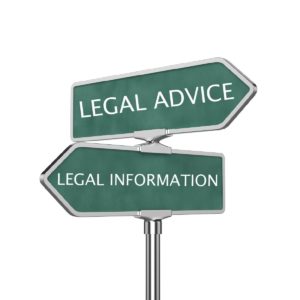
Social proof is a powerful and well-documented phenomenon and is frequently used to great effect by businesses of all type to obtain customers and clients. One social proof technique is the use of client testimonials.
Most jurisdictions explicitly allow attorneys to use client testimonials in some form or fashion. However, certain restrictions, prohibitions, and requirements vary state to state.
Nebraska and Utah allow the use of testimonials, but require the inclusion of disclaimers to prevent the testimonials from being false or misleading.
Other states make a distinction between “hard” and “soft” testimonials, allowing soft testimonials, but prohibiting hard ones. (North Carolina, New Jersey, Virginia). Soft testimonials focus on characteristics of the lawyer’s service, such as:
- the lawyer was sympathetic or concerned;
- the lawyer returned phone calls;
- the lawyer was prompt in responding to client requests;
- the lawyer was very knowledgeable; or
- the service provided by the lawyer was excellent.
Hard testimonials go to the outcome of the case or compare the lawyer to another. Examples include:
- the lawyer settled my case for $1 million;
- the charges against me were dropped; or
- the lawyer is the best in the city.
Georgia has not directly addressed testimonials, but there, a communication is false, fraudulent, deceptive or misleading if it:
- is likely to create an unjustified expectation about results the lawyer can achieve, or states or implies that the lawyer can achieve results by means that violate the Georgia Rules of Professional Conduct or other law; or
- compares the lawyer’s services with other lawyers’ services unless the comparison can be factually substantiated.
In South Carolina, a testimonial about a lawyer is deemed false, misleading, or deceptive, if:
- it does not identify the fact that it is a testimonial or endorsement;
- it was paid for, without disclosing that fact;
- it is not made by an actual client, without identifying that fact; and
- it does not clearly and conspicuously state that any result the endorsed lawyer or law firm may achieve on behalf of one client in one matter does not necessarily indicate similar results can be obtained for other clients.
Florida provides as an example of deceptive and inherently misleading advertisement, a testimonial:
- regarding matters on which the person making the testimonial is unqualified to evaluate;
- that is not the actual experience of the person making the testimonial;
- that is not representative of what clients of that lawyer or law firm generally experience;
- that has been written or drafted by the lawyer;
- in exchange for which the person making the testimonial has been given something of value; or
- that does not include the disclaimer that the prospective client may not obtain the same or similar results.
A lawyer should always obtain client consent to publicly disclose his name in connection with a testimonial. In addition, remember that a lawyer’s communications to the public about her services cannot be false or misleading also applies to a lawyer’s use of client testimonials, even though the words are being stated by the client and not the lawyer. As a general proposition, if a lawyer can’t say it, then a client can’t say it.
You should always check your local rules and ethics opinions for the most up-to-date requirements in your jurisdiction.







